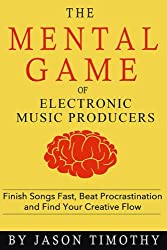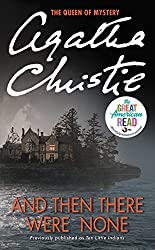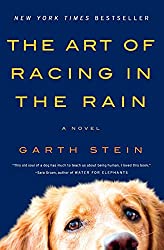
Rating: 7.6/10.
The Mental Game of Electronic Music Production: Finish Songs Fast, Beat Procrastination and Find Your Creative Flow by Jason Timothy
A kind of self-help book about how to be productive as a music producer. It is important to build a habit of doing a bit of music production every day, especially finishing songs that you started. Expect to suck when you’re just starting out, but quantity is more important than quality and your quality will naturally improve as you make more music. Consistency is key and is the ingredient to getting better.
As a beginning music producer, it is easy to fall into a trap of watching lots of tutorials, learning about various plugins and DAW features, etc, without actually making music. This is counterproductive since you will not retain much information this way anyways, unless you put it into practice, you have to learn by doing (a good ratio is to spend 80% of time doing and 20% of the time learning).
Music production involves both the creative and logical parts of your brain. It is important not to disrupt your creative flow: don’t stop in the middle of something to muck around with your tools to get the sound exactly right, get the main musical idea down first, and only later come back to fix the details. When there are infinite choices for sounds and effects, you will be overwhelmed, so pick a set of favorite sounds and effects and stick to them. Artists steal and borrow from each other all the time, so it’s perfectly okay to copy the structure of a song that you like.
The latter half of the book is more technical advice about different parts of a song and how to make them sound good (the author produces electronic genre music), including a list of things to watch out for when mixing, but most of the advice can be applied to any genre of music you’re producing. Unlike classical music where the set of instruments is mostly fixed, in EDM you have nearly infinite possibilities for sound design and effects, which is bad when it leads to paralysis. In this case, giving yourself limitations can be a good thing, and you should always try to squeeze the most music out of the tools and techniques you know, and only learn more when you are hitting a wall.



